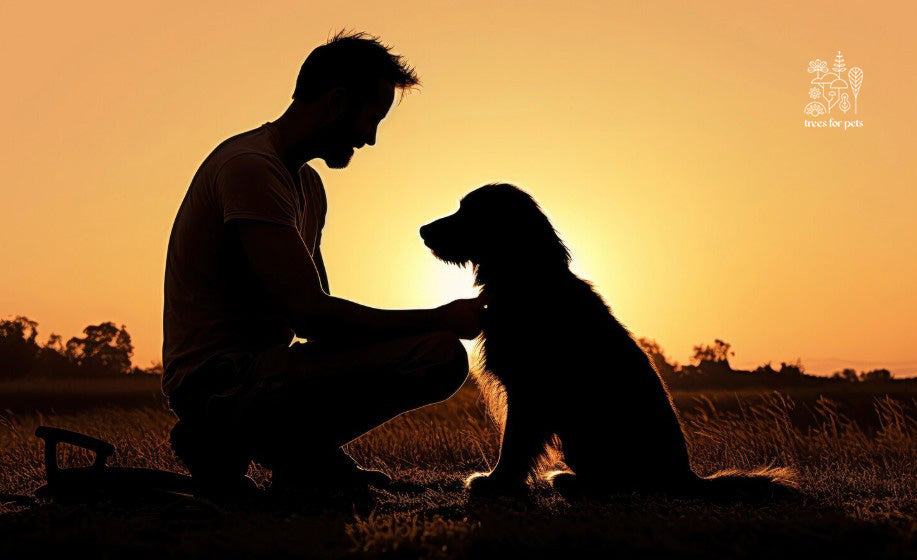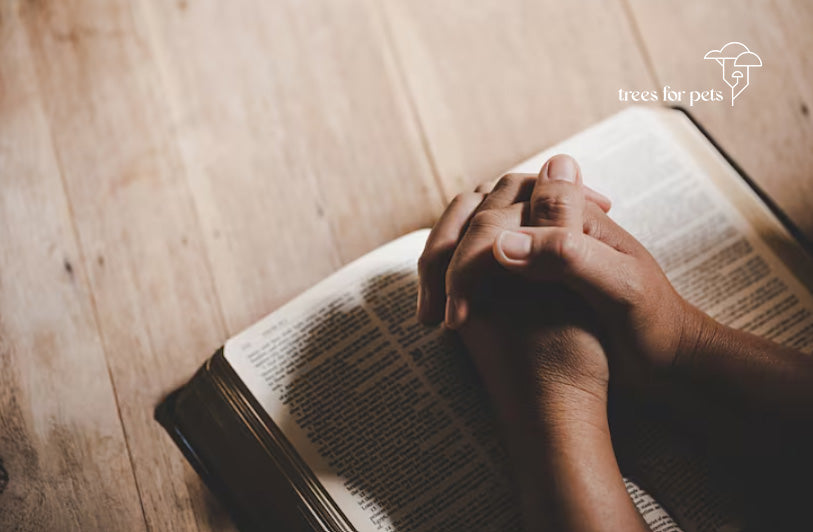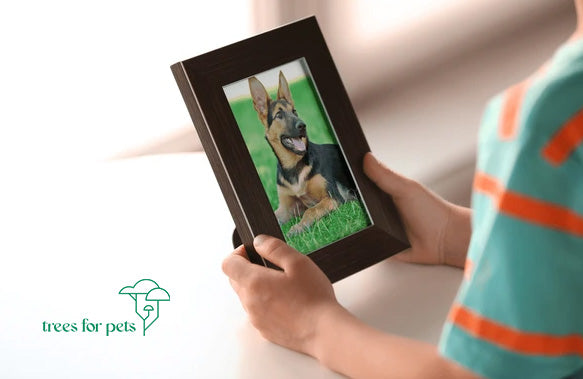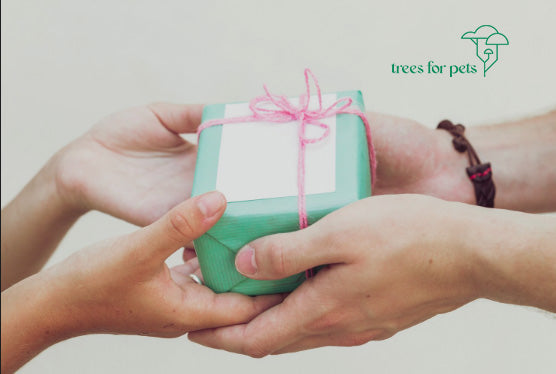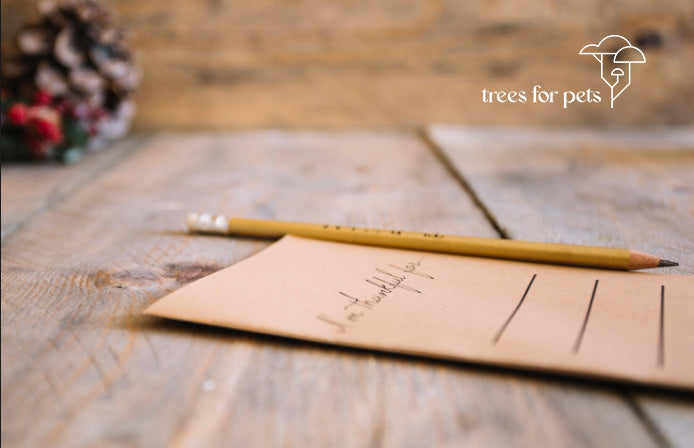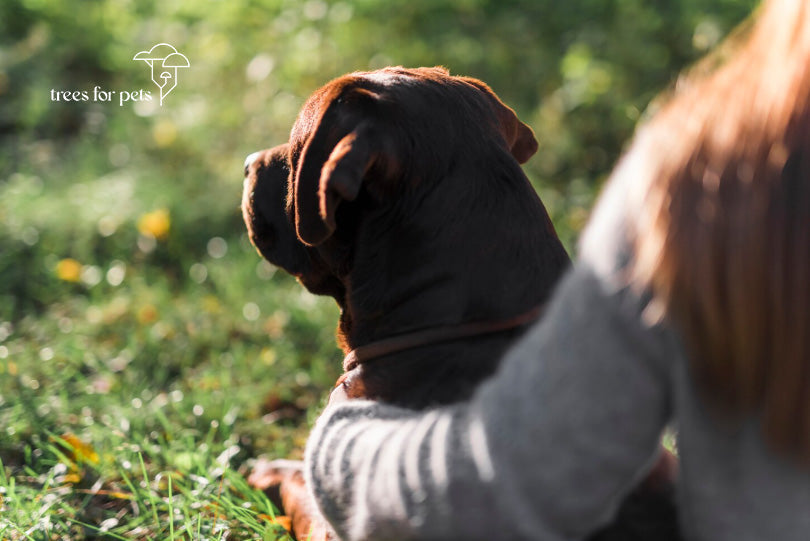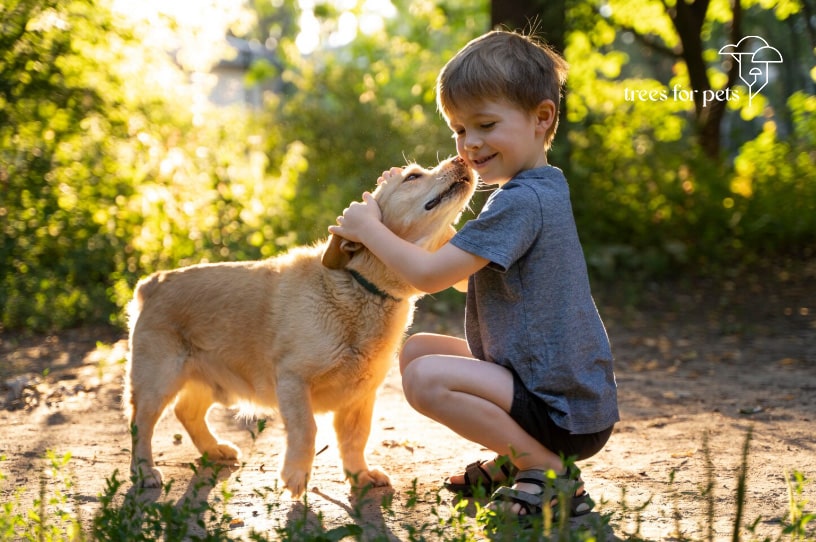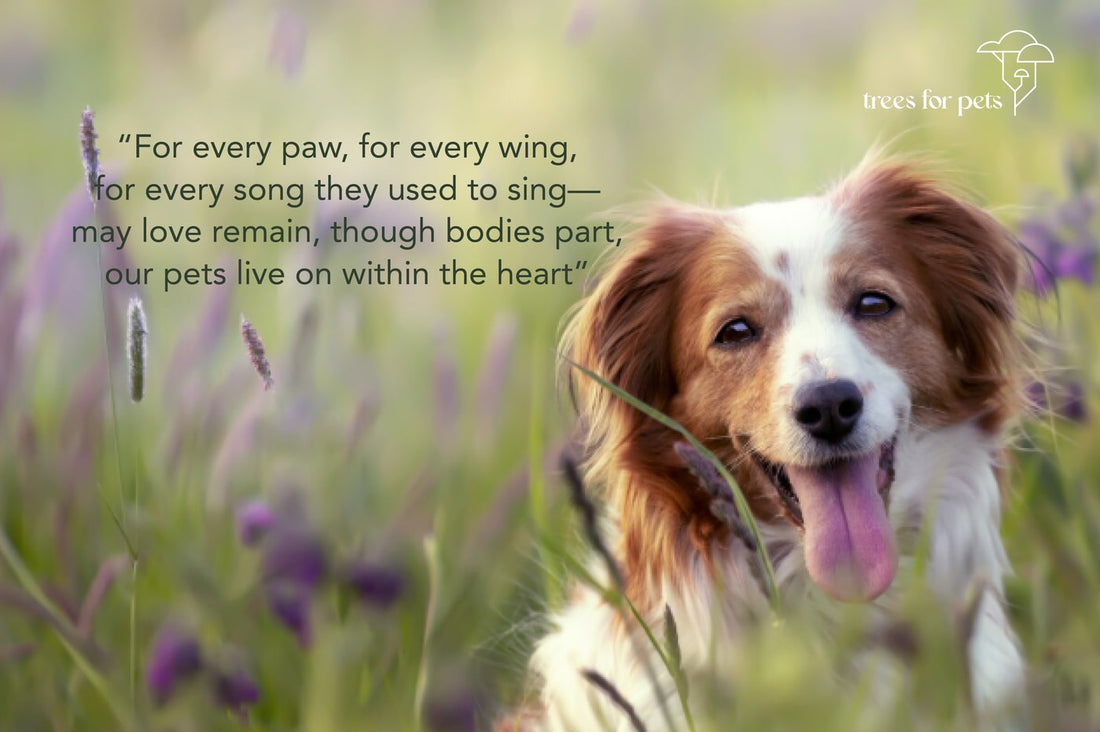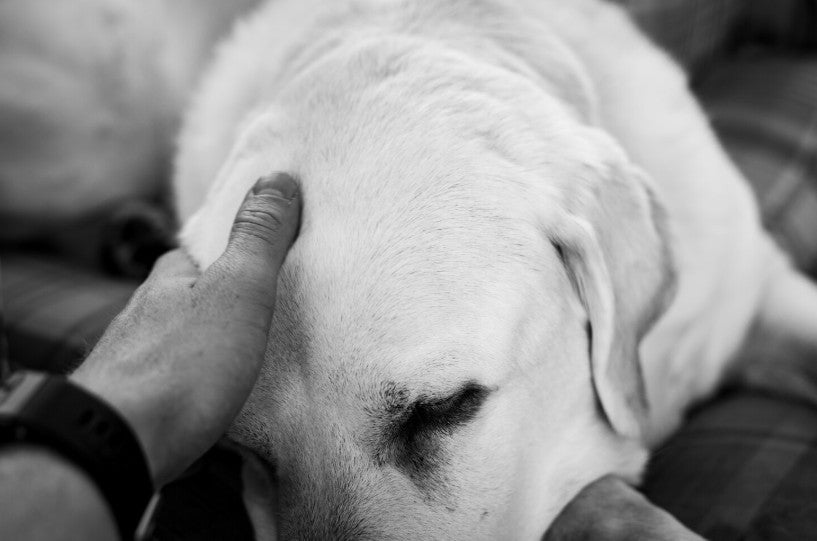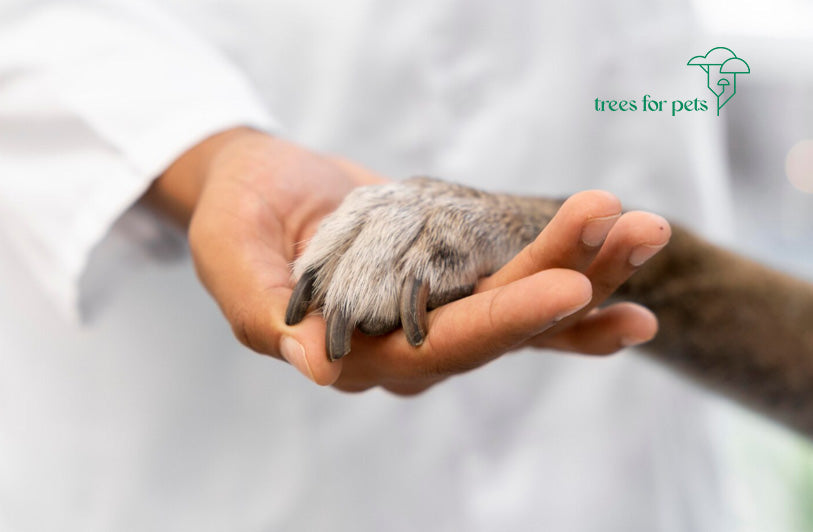The morning after your pet dies, you wake up and for just a moment, everything feels normal. Then reality crashes back, and you remember they won't be there for breakfast, afternoon naps, or evening cuddles ever again.
Learning how to deal with pet loss isn't about "getting over" your companion or following someone else's timeline for healing. It's about finding ways to carry love forward while building new routines that honor both their memory and your own well-being.
Understanding Why Pet Loss Hurts So Much
Pet relationships are unique in their consistency and simplicity. Your dog greeted you the same way every single day for years. Your cat's purring provided comfort through countless difficult moments. They offered love without conditions, expectations, or complicated human emotions.
When this reliable source of comfort disappears, the void feels enormous.
Pet loss grief is complicated by several factors:
- Daily routine disruption affecting every part of your schedule
- Lack of social recognition for the depth of human-animal bonds
- Guilt over end-of-life decisions and quality of care provided
- Empty home syndrome where familiar spaces feel hollow
- Identity shifts from being "their person" to navigating life alone
These feelings are normal responses to losing a significant relationship, regardless of what others might say about "just pets."
The First Week: Survival Mode
The immediate aftermath of pet loss often feels surreal and overwhelming.
Focus on basic self-care:
- Eat regular meals even if you're not hungry
- Stay hydrated and try to sleep when possible
- Accept help from friends and family members
- Take time off work if needed and available
- Allow yourself to feel whatever emotions arise
Don't make major decisions during this period. Your judgment may be clouded by grief, and decisions about memorial options, new pets, or significant life changes can wait until emotional intensity decreases.

Practical immediate needs:
- Remove or store pet supplies based on your comfort level
- Notify your veterinarian, pet insurance, and any pet services
- Inform friends and family about your loss
- Consider basic pet loss gifts if it provides comfort. Explore some examples about pet memorial trees.
The First Month: Finding New Rhythms
As initial shock fades, the daily reality of life without your pet becomes more apparent.
Disrupted routines need gradual rebuilding:
- Morning schedules no longer structured around pet care
- Evening patterns missing familiar comfort rituals
- Weekend activities previously planned around pet needs
- Sleep disruption without their presence or sounds
Creating new routines helps establish stability:
- Develop morning activities that provide purpose and structure
- Plan evening comfort rituals like tea, reading, or gentle music
- Schedule regular activities outside the home
- Consider memorial activities that provide positive focus
This is also when planning meaningful memorials can provide healing focus without overwhelming immediate grief.
Working Through Guilt and Regret
Lossing a pet often triggers intense guilt about decisions made during their lifetime and final care.
Common guilt patterns include:
- "Should I have tried different treatments?"
- "Did I wait too long to make end-of-life decisions?"
- "Was I a good enough pet parent?"
- "Could I have prevented their illness or accident?"
These thoughts are normal but rarely based in reality. Loving pet parents make the best decisions possible with available information and resources.
Guilt processing strategies:
- Write down specific guilt thoughts and examine their accuracy
- Consider what you would tell a friend experiencing similar thoughts
- Remember that your pet experienced years of love and care
- Focus on positive memories rather than final moments
- Seek professional support if guilt becomes overwhelming
Dealing with Others' Responses
People who haven't experienced deep pet bonds may minimize your grief or offer unhelpful advice.
Common insensitive responses:
"It was just a dog/cat"
"You can get another one"
"At least they lived a good life"
"Why don't you focus on human problems?"
Protecting your healing process:
- Limit discussions about your pet with unsympathetic people
- Seek support from pet-loving friends and family members
- Join online or in-person pet loss support groups
- Remember that others' inability to understand doesn't diminish your relationship's importance
Helpful responses to share with supportive people:
- "Tell me about [pet's name] and what made them special"
- "What was your favorite memory together?"
- "How can I support you right now?"
- "Would you like to talk about them or prefer company without discussing your loss?"
Creating Meaningful Memorial Tributes
Memorial activities provide positive focus while honoring your pet's memory.
Memorial options that support healing:
- Living memorials: Plant memorial trees that grow over time, creating lasting environmental contribution while symbolizing your continuing love. Trees for Pets provides coordinates and certificates connecting you to your pet's growing legacy.
- Service memorials: Volunteer at animal shelters, foster pets, or donate to rescue organizations, channeling love into helping other animals.
- Creative memorials: Photo albums, pet portrait, memory books, custom artwork, or digital tributes help process grief while celebrating your pet's personality.
- Physical memorials: Memorial stones, custom urns, or jewelry incorporating their ashes provide tangible connection for people who need physical reminders.
The best memorial options feel authentic to your relationship and provide ongoing comfort rather than fresh pain.
Managing Triggers and Difficult Moments
Grief doesn't follow predictable patterns, and unexpected triggers can bring intense emotions.
Common triggers include:
- Seeing similar pets in public
- Hearing familiar sounds like jingling collars or purring
- Visiting places you enjoyed together
- Encountering their favorite treats or toys in stores
- Anniversary dates and significant milestones
Coping with triggers:
- Acknowledge that triggers are normal and don't indicate healing problems
- Develop self-soothing strategies like deep breathing or grounding techniques
- Plan ahead for difficult dates and locations
- Allow yourself to feel emotions without judgment
- Have support people available for particularly challenging moments

The Role of Professional Support
Pet loss counselors understand the unique aspects of human-animal grief and can provide valuable support.
Consider professional help if:
- Grief interferes with daily functioning for extended periods
- You experience thoughts of self-harm or substance abuse
- Guilt and regret dominate your thoughts
- Relationship problems develop due to unresolved grief
- You feel completely unable to consider any memorial options
- Family members have conflicting grief styles causing tension
Pet loss counselors can help with:
- Validating your grief experience and emotional responses
- Processing guilt, regret, and difficult end-of-life decisions
- Navigating family dynamics during shared pet loss
- Exploring memorial options and readiness for new pets
- Developing coping strategies for ongoing grief waves
Considering New Pets: Timing and Readiness
There's no universal timeline for readiness to welcome new pets into your life.
Signs you might be ready:
- Thinking about new pets brings excitement rather than immediate pain
- You can discuss your deceased pet's positive qualities without overwhelming sadness
- Your current living situation and schedule can accommodate new pet care
- You're motivated by love for animals rather than attempting to replace your pet
- You've created meaningful pet memorial gifts for your deceased pet
Signs you may need more time:
- Every new pet consideration feels like betrayal of your pet's memory
- You expect new pets to behave exactly like your deceased companion
- Grief still dominates daily emotional experience
- You're rushing into pet adoption to avoid feeling grief
- Financial or housing situations have become unstable
When you are ready, consider:
- Different breeds, ages, or species than your previous pet
- Allowing new pets to develop their own personalities
- Maintaining memorial tributes for your deceased pet
- Taking adoption processes slowly to ensure good matches
Long-term Grief and Healing
Pet grief doesn't disappear completely, but it does transform over time.
Healthy long-term grief includes:
- Ability to share happy memories without overwhelming sadness
- Occasional grief waves that feel manageable rather than devastating
- Interest in helping other animals or supporting pet causes
- Capacity to enjoy new pets without constant comparison
- Integration of your pet's influence into ongoing life decisions
- Comfort with memorial activities and anniversary acknowledgments
Unhealthy grief patterns that may need professional support:
- Complete avoidance of any pet-related activities or memories
- Inability to function normally years after loss
- Persistent guilt dominating thoughts about your pet
- Inability to form new relationships due to fear of future loss
- Substance abuse or other destructive coping mechanisms
Building Support Networks
Healing happens in community, even for independent people.
Helpful support sources:
- Friends and family members who understand pet relationships
- Online pet loss communities and forums
- Local pet loss support groups through veterinary practices
- Pet loss hotlines for immediate crisis support
- Professional counselors specializing in pet bereavement
Contributing to support networks:
- Share your experience with others facing fresh pet loss
- Volunteer with organizations helping grieving pet families
- Advocate for pet loss recognition in workplaces and communities
- Support friends through their pet loss experiences
- Donate to or volunteer with animal welfare organizations
Practical Considerations During Grief
Grief affects decision-making ability, so plan ahead for practical needs.
Financial considerations:
- Budget for memorial options, counseling, or support group participation
- Consider pet insurance or emergency funds for future pets
- Plan for potential time off work during acute grief periods
- Research low-cost memorial alternatives if budget is limited
Housing and lifestyle adjustments:
- Decide whether to maintain pet-friendly housing
- Consider downsizing if pet care was primary reason for current home
- Evaluate need for pet-related services and subscriptions
- Plan for disposal or donation of pet supplies and equipment
Legal and administrative tasks:
- Update veterinary records and emergency contacts
- Modify pet insurance policies or cancel unnecessary services
- Consider estate planning changes if pets were primary beneficiaries
- Notify apartment managers or HOAs about pet status changes
Anniversary Dates and Special Occasions
Significant dates can trigger intense grief waves even years after loss.
Difficult dates often include:
- Anniversary of your pet's death
- Their birthday or adoption day
- Holidays you celebrated together
- Seasonal changes marking time passage
- First experiences without them (moving, vacations, major life events)
Strategies for managing difficult dates:
- Plan memorial activities that feel meaningful rather than obligatory
- Spend time with supportive people who knew your pet
- Create new traditions honoring their memory
- Allow flexibility in how you mark these occasions
- Consider travel or special activities if staying home feels too difficult
Finding Meaning in Pet Loss
Many people find that pet loss, while painful, eventually contributes to personal growth and expanded compassion.
- Potential positive outcomes include:
- Deeper appreciation for relationships while they exist
- Increased empathy for others experiencing any type of loss
- Motivation to support animal welfare causes
- Better understanding of what brings genuine happiness
- Commitment to living more intentionally and authentically
This doesn't minimize the pain of loss or suggest that losing your pet was "worth it" for personal growth—it simply acknowledges that healing can include finding meaning in difficult experiences.

Creating Ongoing Connection
Healthy grief involves maintaining connection to your pet's memory in sustainable ways.
Ongoing connection activities:
- Regular visits to memorial locations (physical or virtual)
- Annual donations to animal charities in their honor
- Volunteer work supporting animal welfare causes
- Sharing their story with other pet families
- Including their memory in family traditions and storytelling
Memorial trees provide particularly meaningful ongoing connection because they grow stronger over time, just like the influence your pet continues to have on your life.
Self-Compassion During Healing
Pet loss healing requires patience with yourself and acceptance of grief's non-linear nature.
Self-compassion practices:
- Speak to yourself with the same kindness you'd offer a friend
- Acknowledge that grief comes in waves and difficult days are normal
- Avoid comparing your grief timeline to others' experiences
- Celebrate small healing milestones without pressure for rapid progress
- Remember that loving deeply inevitably means grieving deeply
Your pet would want you to be kind to yourself during this difficult time.
When Grief Feels Overwhelming
If pet loss grief feels unmanageable, immediate support is available.
Crisis resources:
- Pet Loss Grief Support Hotline: Available for immediate emotional support
- Local crisis counseling services: Many offer pet loss specialty support
- Online crisis chat services: Immediate access when phone calls feel difficult
- Emergency counseling services: For thoughts of self-harm or substance abuse
Remember that seeking help shows strength, not weakness, and professional support can accelerate healing while preventing complicated grief patterns.
Moving Forward with Purpose
Eventually, many people find that their pet's memory motivates purposeful action.
Purpose-driven healing activities:
- Advocating for animal welfare legislation
- Supporting rescue organizations and shelter programs
- Fostering animals or volunteering with pet therapy programs
- Creating resources for other grieving pet families
- Environmental action inspired by memorial tree planting
Your pet's influence on your life doesn't end with their death—it often becomes more intentional and impactful.
The Bottom Line on Dealing with Pet Loss
Pet loss grief is real, valid, and deserves the same respect given to any significant relationship loss.
Healing doesn't mean forgetting your pet or "getting over" them—it means learning to carry love in new ways while building life routines that honor both their memory and your ongoing well-being.
Take healing at your own pace, seek support when needed, and trust that the love you shared with your pet continues to influence your life in positive ways.
Your grief is proportional to your love. Be patient with yourself as you navigate this difficult journey, and remember that healing is possible while keeping your pet's memory alive.
They brought love, joy, and meaning to your life. Now it's time to let that love guide you toward healing, purpose, and renewed appreciation for the relationships that make life worth living.
------
Honor your pet's memory while supporting your healing journey through Trees for Pets memorial trees—living tributes that grow stronger over time, just like the love you'll always carry for your beloved companion.

